
Find Help
More Items From Ergsy search
-

Can heart failure be prevented?
Relevance: 100%
-
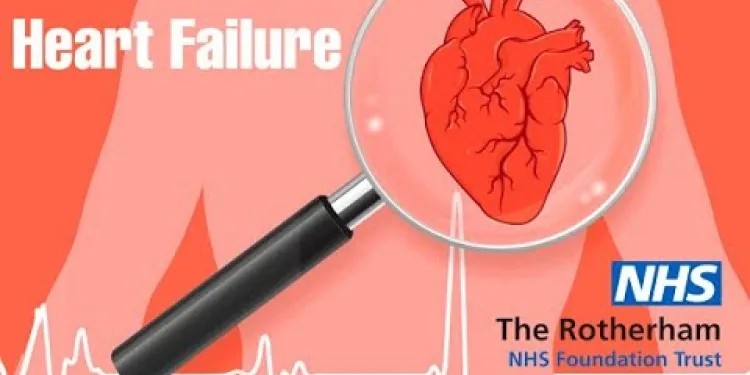
Heart Failure : Symptoms of heart failure
Relevance: 91%
-
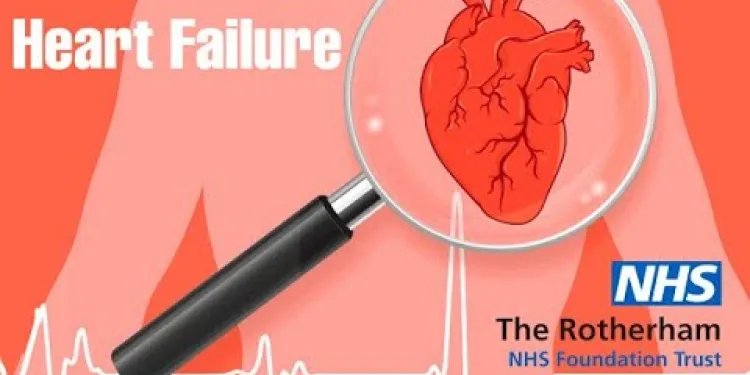
Heart Failure : What is heart failure?
Relevance: 89%
-
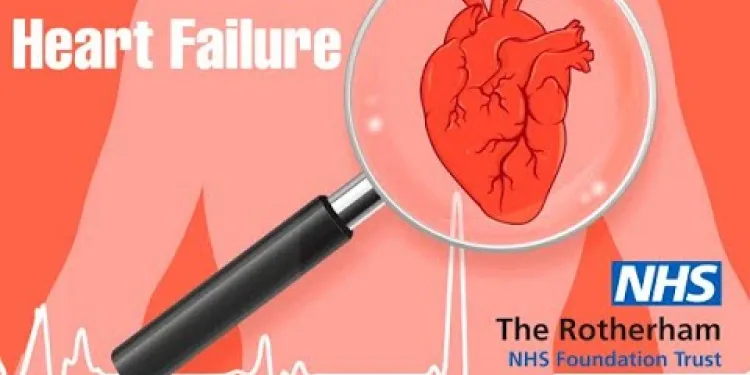
Heart Failure : Heart failure that cannot pump
Relevance: 87%
-

Heart Failure : The normal heart
Relevance: 86%
-

Heart failure introduction
Relevance: 86%
-

Are there different types of heart failure?
Relevance: 81%
-

What causes heart failure?
Relevance: 80%
-
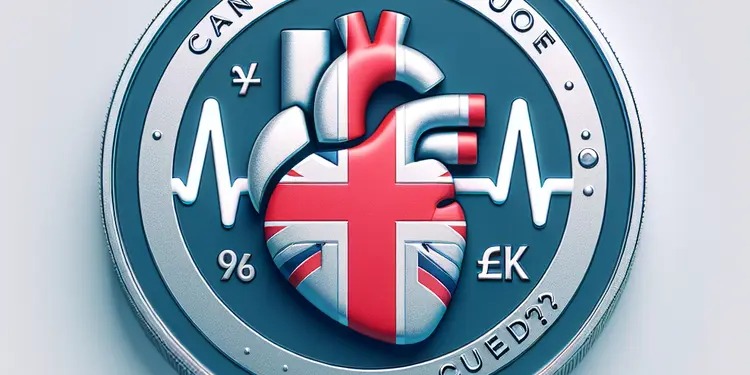
Can heart failure be cured?
Relevance: 80%
-
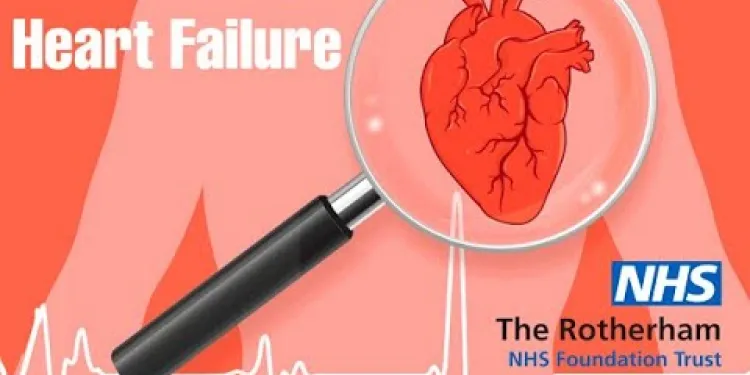
Heart Failure : When the heart becomes stiff?
Relevance: 80%
-
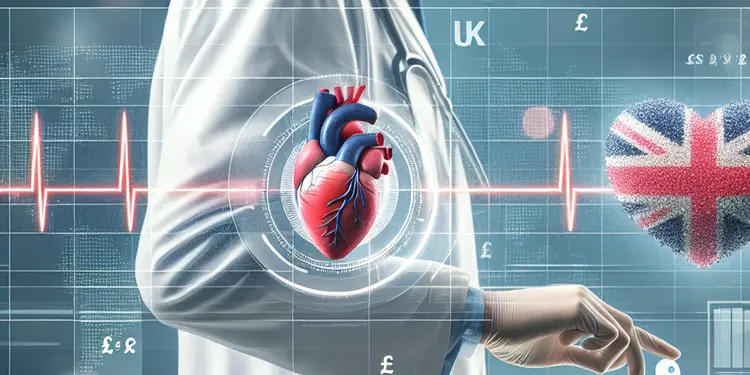
How is heart failure diagnosed?
Relevance: 78%
-
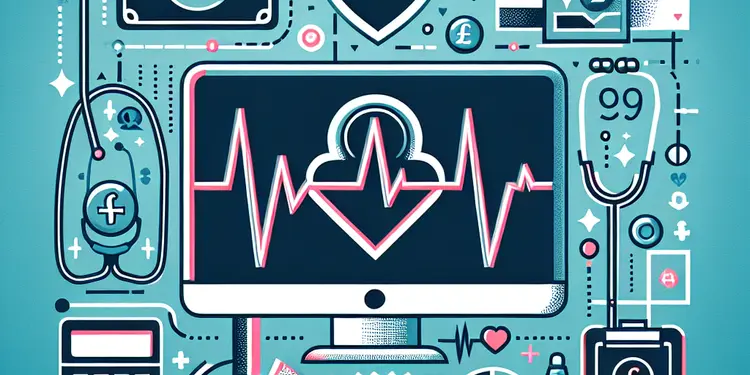
What is the prognosis for someone with heart failure?
Relevance: 75%
-
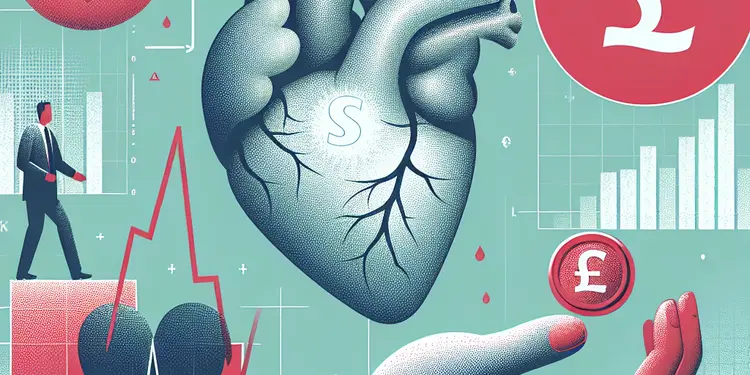
What should I do if I experience symptoms of heart failure?
Relevance: 75%
-
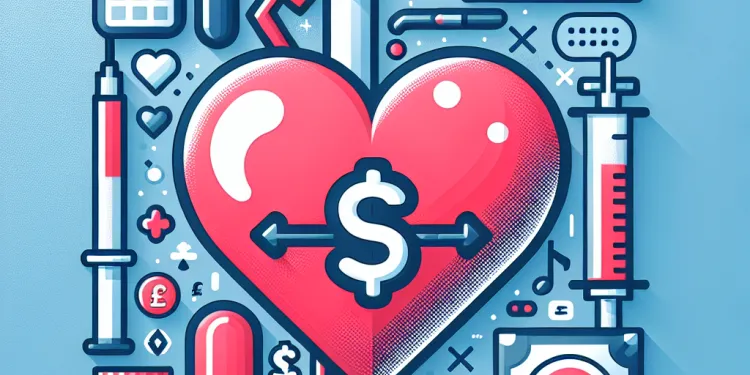
Is Baxdrostat used in treating heart failure?
Relevance: 74%
-

What is the role of diet in managing heart failure?
Relevance: 74%
-
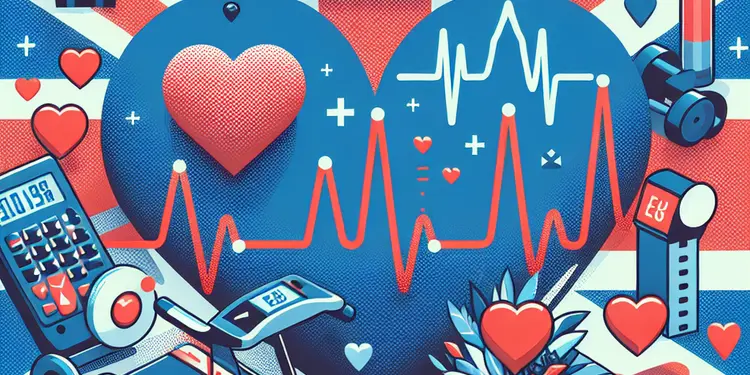
How does exercise impact heart failure?
Relevance: 74%
-
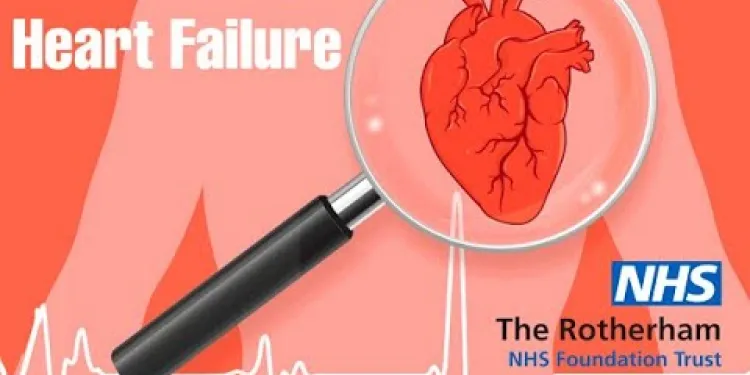
Heart Failure : Treatment and monitoring of fluid retention
Relevance: 73%
-
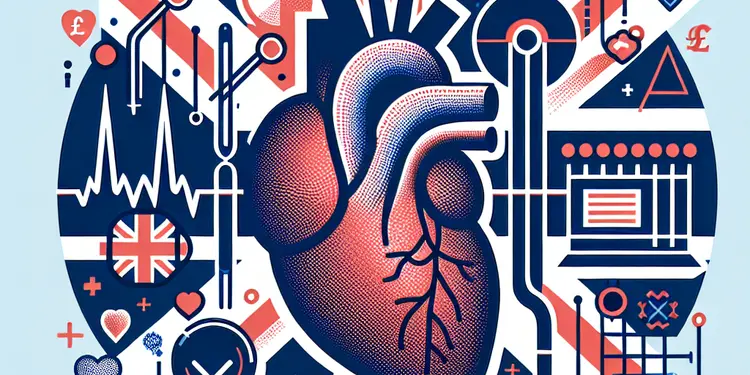
Can heart failure affect other organs?
Relevance: 72%
-

What medications are commonly prescribed for heart failure?
Relevance: 71%
-
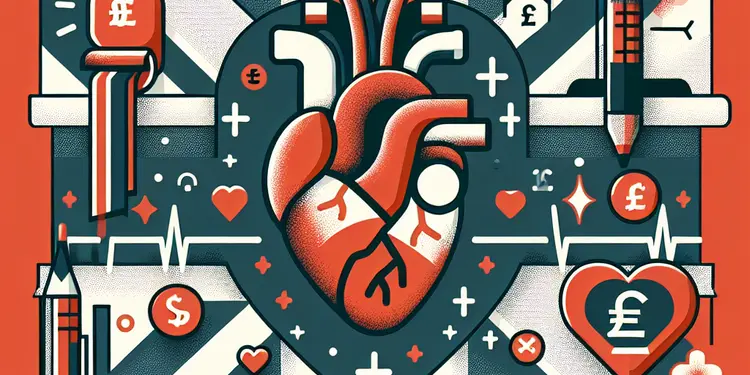
What is heart failure?
Relevance: 63%
-

How do beta-blockers contribute to heart attack prevention?
Relevance: 59%
-

What are the common symptoms of heart failure?
Relevance: 57%
-

Is it possible to prevent a heart attack?
Relevance: 56%
-

Do calcium channel blockers help in preventing heart attacks?
Relevance: 50%
-

What lifestyle changes can help manage heart failure?
Relevance: 50%
-
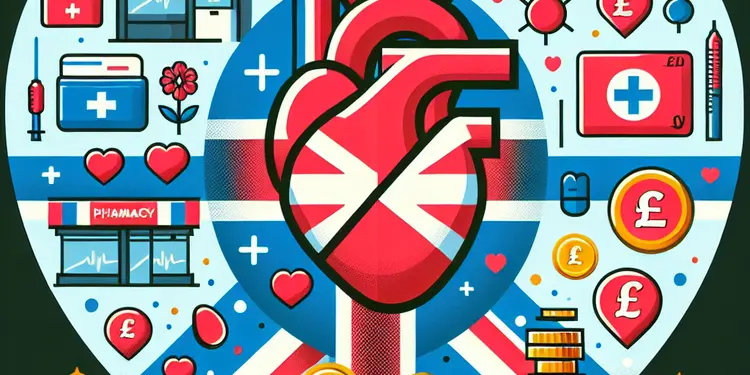
Do over-the-counter medications help in preventing heart attacks and strokes?
Relevance: 49%
-
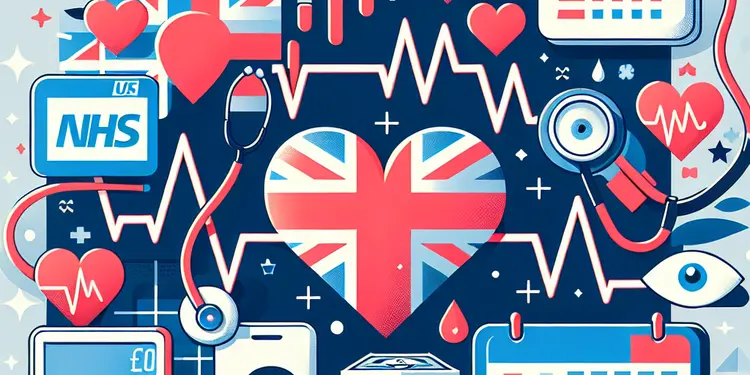
How often should someone with heart failure see their doctor?
Relevance: 49%
-
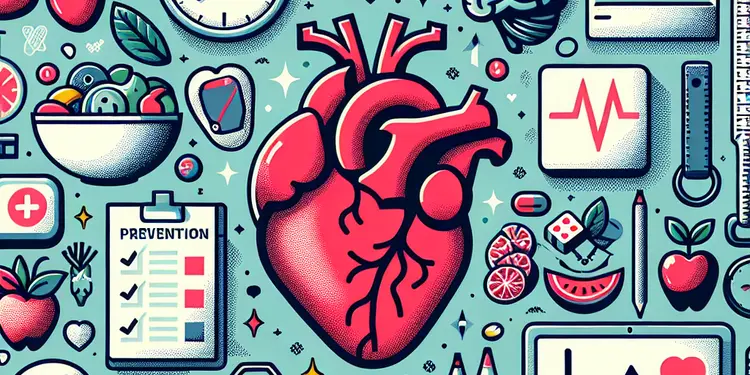
What is the role of lifestyle modification in heart attack and stroke prevention?
Relevance: 47%
-

Do all patients need medication to prevent heart attacks and strokes?
Relevance: 47%
-
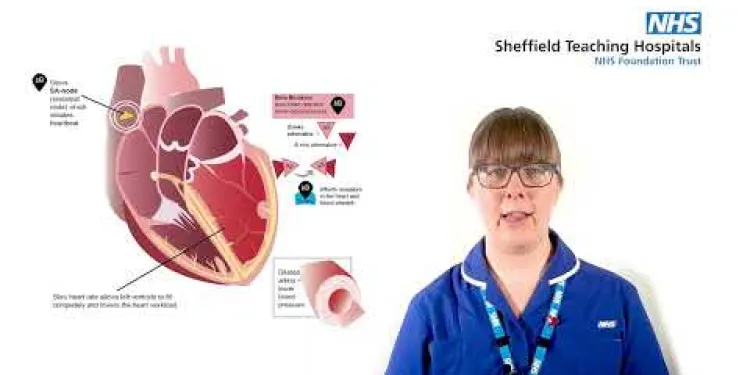
Medicines of the heart
Relevance: 47%
-
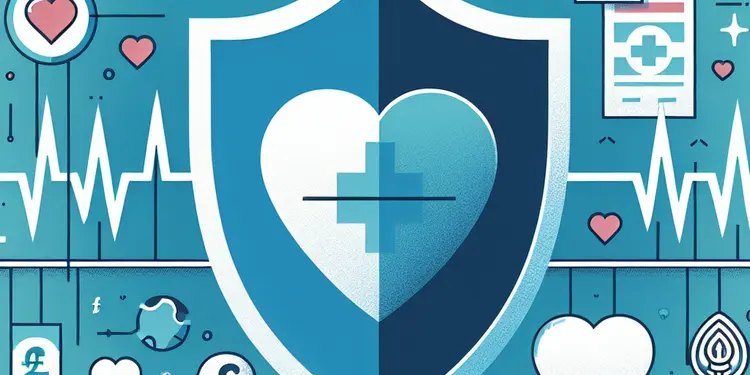
When should one start taking medication for heart attack prevention?
Relevance: 46%
-

Is my abnormal heart rhythm dangerous?
Relevance: 45%
-

Can lifestyle changes reduce the need for medication for heart disease prevention?
Relevance: 45%
-

What is the role of PCSK9 inhibitors in heart attack prevention?
Relevance: 44%
-
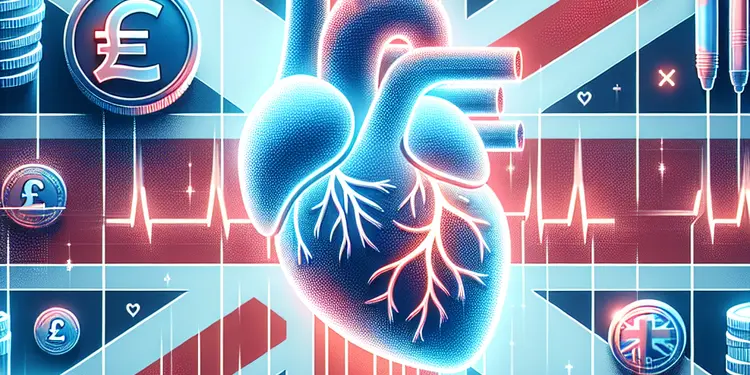
What are the long-term effects of a heart attack?
Relevance: 42%
-

Heart stents
Relevance: 41%
-

Is my abnormal heart rhythm dangerous?
Relevance: 40%
-

Are there any natural supplements that can help prevent heart attacks?
Relevance: 39%
-
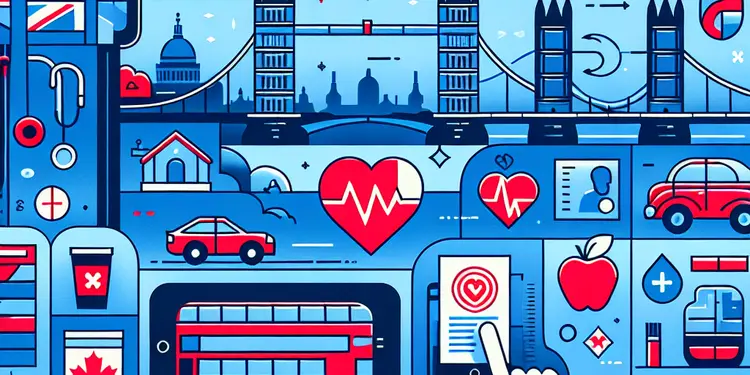
What are the risk factors for a heart attack?
Relevance: 39%
-

Heart Attack Stories | NHS
Relevance: 39%
Understanding Heart Failure
Heart failure is a chronic condition in which the heart is unable to pump sufficient blood to meet the body's needs. It is a progressive disease that affects many people in the UK and around the world. Although it can be a serious health issue, there are various ways to reduce the risk of developing heart failure.
Risk Factors for Heart Failure
Several risk factors are associated with heart failure. These include coronary artery disease, high blood pressure, diabetes, obesity, and lifestyle factors such as smoking and a sedentary lifestyle. Some risk factors, such as age and genetic predisposition, cannot be modified, but many lifestyle changes can significantly reduce one's risk.
Lifestyle Modifications
Adopting a healthy lifestyle is one of the most effective ways to prevent heart failure. Regular physical activity is essential; adults should aim for at least 150 minutes of moderate-intensity exercise per week. Activities like brisk walking, cycling, or swimming can strengthen the heart and improve overall cardiovascular health.
Diet also plays a crucial role. A heart-healthy diet typically includes plenty of fruits, vegetables, whole grains, and lean proteins. Reducing salt intake can help manage blood pressure, while limiting saturated fats and sugars can support weight management and reduce the risk of coronary artery disease.
Managing Existing Health Conditions
For individuals with existing health issues such as high blood pressure, diabetes, or high cholesterol, proper management is key. Regular check-ups with healthcare professionals can ensure these conditions are well-controlled. Medications may be necessary to maintain optimal health, and adherence to prescribed treatments is important to prevent heart failure.
Quitting Smoking and Limiting Alcohol
Smoking is a major risk factor for heart disease and heart failure. Quitting smoking can significantly improve cardiovascular health and reduce the risk of heart failure. Similarly, excessive alcohol consumption can be harmful to the heart, so it is advised to follow UK guidelines on alcohol consumption to maintain heart health.
Regular Health Screenings
Regular health screenings can help detect early signs of heart disease and other related conditions. Blood pressure, cholesterol levels, and diabetes screenings are important components of preventive healthcare. Early detection and management of these conditions can substantially reduce the risk of developing heart failure.
Conclusion
While not all cases of heart failure can be prevented, adopting a healthy lifestyle and managing existing health conditions can significantly lower the risk. By making informed lifestyle choices and prioritising heart health, individuals in the UK can take proactive steps towards preventing heart failure.
What Is Heart Failure?
Heart failure is when the heart cannot pump enough blood. This means the body does not get all the blood it needs. It can be a serious problem, but there are ways to make it less likely.
What Can Make Heart Failure More Likely?
Heart failure can be caused by things like heart disease, high blood pressure, diabetes, and being very overweight. Smoking and not moving around much also make it more likely. Some things, like getting older or family history, can't be changed, but there are other things you can do.
How To Stay Healthy
Living healthy can help prevent heart failure. Try to exercise. Grown-ups should do at least 150 minutes of exercise each week. This could be walking quickly, riding a bike, or swimming.
Eating healthy food is important too. Eat lots of fruits, vegetables, and foods like whole grains and lean meats. Try to eat less salt, fat, and sugar. This can help you stay at a healthy weight and keep your heart healthy.
Taking Care of Other Health Problems
If you have health problems like high blood pressure or diabetes, it's important to take care of them. Visit your doctor regularly and take any medicine they give you. This can help stop heart failure.
Stop Smoking and Drink Little Alcohol
Smoking can harm your heart. Stopping smoking can make your heart healthier. Drinking too much alcohol can hurt your heart too. Follow the UK guidelines for how much alcohol is safe to drink.
Have Regular Health Check-Ups
See the doctor regularly to check your blood pressure and cholesterol. They can find problems early and help keep your heart healthy.
The Big Picture
You might not be able to stop all heart failure, but living healthy can help. Make good choices for your heart health. People in the UK can do a lot to keep their hearts strong and healthy.
Frequently Asked Questions
What is heart failure?
Heart failure is a chronic condition where the heart doesn't pump blood as well as it should.
Can heart failure be prevented?
In many cases, heart failure can be prevented with a healthy lifestyle and management of risk factors.
What lifestyle changes can help prevent heart failure?
Regular exercise, a healthy diet, maintaining a healthy weight, and avoiding smoking can help prevent heart failure.
Why is controlling blood pressure important in preventing heart failure?
High blood pressure can damage the heart over time, so controlling it reduces the risk of heart failure.
How does diet affect the risk of heart failure?
A balanced diet low in salt, saturated fats, and sugars can reduce the risk of heart failure.
Which types of food are recommended to lower heart failure risk?
Fruits, vegetables, whole grains, and lean proteins are recommended to lower heart failure risk.
How important is regular exercise in preventing heart failure?
Regular exercise strengthens the heart and improves circulation, reducing the risk of heart failure.
Can stopping smoking reduce heart failure risk?
Yes, stopping smoking can significantly reduce the risk of heart failure and improve heart health.
How does diabetes management relate to heart failure prevention?
Proper diabetes management helps prevent complications that can lead to heart failure.
What role does cholesterol play in heart failure risk?
High cholesterol can lead to atherosclerosis, increasing the risk of heart disease and failure.
Can alcohol consumption affect heart failure risk?
Excessive alcohol consumption can increase heart failure risk, so moderation is important.
Does stress management help in preventing heart failure?
Yes, managing stress through relaxation techniques can contribute to heart health and reduce failure risk.
Is monitoring weight important for heart failure prevention?
Maintaining a healthy weight reduces strain on the heart, lowering heart failure risk.
Can medication help in preventing heart failure?
Medications to control blood pressure, cholesterol, and diabetes can help prevent heart failure.
What are the warning signs of heart failure?
Warning signs include shortness of breath, fatigue, swollen ankles, and rapid or irregular heartbeat.
Can a family history of heart disease increase heart failure risk?
Yes, a family history of heart disease can increase risk, but lifestyle changes can mitigate this.
How does regular health screening contribute to heart failure prevention?
Regular health screenings can detect early signs of heart disease, allowing for timely intervention.
How does sleep affect heart failure risk?
Poor sleep patterns can increase risk factors for heart disease, indirectly raising heart failure risk.
Why is it important to know your family medical history in relation to heart failure?
Knowing your family medical history can help assess risk and encourage proactive health measures.
Can heart failure be reversed if caught early?
While heart failure cannot typically be reversed, early intervention can manage symptoms and slow progression.
What is heart failure?
Heart failure means the heart is not working properly. It has trouble pumping blood around the body.
Here are some things that can help:
- Visit a doctor for advice.
- Take medicine if the doctor gives you some.
- Rest when you feel tired.
- Eat healthy foods.
If you don’t understand, ask someone to help explain.
Heart failure is a long-term problem where the heart can't pump blood as it should.
Can we stop heart failure from happening?
Heart failure means the heart isn't working well. We can help stop it by doing a few things:
- Eat healthy food: Eat fruits and vegetables. Try to avoid too much salt and sugar.
- Exercise regularly: Move your body every day. Try walking, dancing, or playing games.
- Don’t smoke: Smoking is bad for your heart. Try to stop if you smoke.
- Visit your doctor: See your doctor for check-ups. They can help you stay healthy.
Ask for help if you need it. Family, friends, or doctors can support you.
You can help stop heart problems by staying healthy and taking care of your body.
How can you stop heart problems with lifestyle changes?
To keep your heart healthy, try doing these things: exercise often, eat good foods, stay at a healthy weight, and don't smoke.
Why is it important to keep blood pressure normal to stop heart problems?
It's important to keep your blood pressure normal. High blood pressure can make your heart work too hard. This can make your heart tired and weak.
When the heart gets weak, it can cause heart problems.
Here are some tips to help:
- Eat healthy foods, like fruits and vegetables.
- Exercise regularly, like playing and walking.
- Listen to your doctor if they give you medicine.
- Check your blood pressure with a doctor.
High blood pressure can hurt the heart. If we keep blood pressure under control, it helps prevent heart problems.
How does what we eat change the chances of heart problems?
Eating healthy food is important for our heart. It can keep our heart strong and working well.
Eating too much junk food can be bad for the heart. It can make it weak and cause problems.
Try to eat lots of fruits and vegetables. They help the heart stay healthy.
Drinking water is good, too. It helps keep our body and heart strong.
There are apps and websites that can help you pick healthy foods. Ask an adult to help you find these tools.
Eating the right foods can keep your heart healthy. Try to eat less salt, bad fats, and sugar. This can help make your heart strong.
What foods can help keep your heart healthy?
Some foods are good for your heart. Eating these foods can help keep your heart strong.
Here are some tips to help you:
- Eat lots of fruits and vegetables. They are good for you.
- Choose whole grains, like brown bread and brown rice.
- Fish is good for the heart. Try to eat fish like salmon.
- Nuts can be a healthy snack.
- Use oils like olive oil for cooking instead of butter.
These tips can help your heart stay healthy and strong.
You can use pictures or ask someone you trust to help understand these tips better.
Eat healthy foods to help your heart stay strong. This means eating fruits, vegetables, whole grains, and lean meats like chicken or fish.
Why is exercise important for a healthy heart?
Exercise helps keep your heart strong.
Try to do a little exercise every day. This can help stop heart problems.
Walking, running, or playing sports are good ways to exercise.
Ask a friend or family member to join you. This can make it more fun!
When you exercise, you make your heart stronger. This helps blood move around your body better. Exercise can help stop heart problems.
Does quitting smoking help your heart?
If you stop smoking, it can help your heart stay strong.
Quitting can make it less likely for your heart to get weak or sick.
Ask a doctor for ways to stop smoking. They can help a lot!
Using apps or talking to support groups can also help you quit.
Yes, quitting smoking is very good for your heart. It helps your heart stay healthy and lowers the chance of heart problems.
How can taking care of diabetes help stop heart problems?
Taking care of diabetes can stop problems that might hurt your heart.
How does cholesterol affect the risk of heart problems?
Cholesterol is a type of fat in the blood. It can make heart problems more likely.
There are two main types of cholesterol:
- Good cholesterol (HDL): Helps keep the heart healthy.
- Bad cholesterol (LDL): Can block blood flow and damage the heart.
It is important to have low levels of bad cholesterol to reduce the risk of heart problems.
Here are some tips to help with understanding:
- Use pictures or diagrams to see how cholesterol works.
- Listen to audio explanations if reading is difficult.
- Ask an adult if you have questions.
Having too much cholesterol is bad. It can make your blood vessels narrow and hard. This can make your heart sick or stop working.
Can drinking alcohol hurt your heart?
If you drink alcohol, can it be bad for your heart?
Drinking too much alcohol can make your heart weak. This can cause something called heart failure. Heart failure means your heart can't pump blood well.
If you are worried about drinking, talk to a doctor. They can help you stay healthy.
To make things easier:
- Use pictures to show what you mean.
- Ask someone to read with you.
- Break information into small steps.
Drinking too much alcohol is bad for your heart. It can make you more likely to have heart problems.
It is better to drink only a little bit.
Here are some ways to help:
- Use an app to track how much you drink.
- Ask a friend to help you keep track.
- Set a goal for how much you want to drink each week.
Can controlling stress stop heart problems?
Feeling stressed can be hard for your heart. Learning ways to stay calm and relaxed can help your heart stay strong. It may stop heart troubles in the future. Here are some tools and tips that can help:
- Breathing Exercises: Take deep breaths to feel calm.
- Exercise: Go for a walk or play outside to feel better.
- Talk to Someone: Share your feelings with a friend or family member.
- Rest: Make sure you get enough sleep every night.
- Mindfulness: Try focusing on the present moment and let go of worries.
These can help make your heart healthy and strong!
Yes, staying calm can help your heart be healthy. It can also make your heart stronger and less likely to have problems.
Is watching your weight important to stop heart problems?
Keeping track of your weight can help keep your heart healthy. If you notice changes, talk to a doctor. They can help you stay well. You can use a scale to check your weight.
Try to eat healthy food like fruits and vegetables. Drink lots of water instead of sugary drinks. Ask someone to help you if you need support.
Keeping a healthy weight is good for your heart. It helps your heart get less tired and can stop heart problems.
Can medicine stop heart problems?
Taking medicine can help keep your heart healthy. Some medicines help if you have high blood pressure, high cholesterol, or diabetes. They can stop your heart from having problems.
What are the warning signs of heart failure?
Heart failure means your heart is not working well. It's important to know the signs, so you can get help quickly.
Here are some warning signs:
- You feel very tired.
- You find it hard to breathe.
- Your feet or legs are swollen.
- You have trouble with coughing or wheezing.
- You feel dizzy or lightheaded.
If you notice these signs, tell an adult or a doctor. It's important to get checked out.
To help understand more, you can use tools like picture cards or videos. They can make learning easier.
Watch out for signs like trouble breathing, feeling very tired, ankles getting bigger, and heartbeat being too fast or not steady.
Does having heart disease in your family make your heart risk higher?
Yes, if your family has heart disease, you might have a higher risk too. But you can do things to help stay healthy.
How can regular health check-ups help stop heart problems?
Going to the doctor regularly can help keep your heart healthy. Here are some ways it helps:
- Doctors can find problems early.
- Doctors can give advice on staying healthy.
- People can learn to eat healthy food.
- Doctors can check blood pressure and cholesterol.
Tools that can help include:
- A calendar to remember doctor visits.
- A notebook to write down questions for the doctor.
- Apps that track health information.
Going to the doctor for check-ups can help find heart problems early. This means doctors can help you sooner.
Does not sleeping well make your heart sick?
Sleeping is important for your heart. If you do not sleep well, your heart can get sick. Getting enough sleep helps keep your heart healthy.
Try these tips to sleep better:
- Go to bed at the same time every night.
- Make your room dark and quiet.
- Avoid screens like phones and computers before bed.
- Relax by reading a book or listening to calm music.
If you notice you are still having trouble sleeping, talk to someone like a doctor for help.
Not sleeping well can be bad for your heart. It can make it more likely for your heart to get sick.
If you have trouble sleeping, you can try some things to help:
- Go to bed at the same time every night.
- Turn off your TV and phone before going to sleep.
- Make your bedroom quiet and dark.
- Try relaxation exercises, like deep breathing.
Why is it good to know your family's health history for your heart?
Knowing your family's health can help doctors keep your heart healthy. If someone in your family had heart problems, you might too.
Here are some things to help you:
- Ask your family about their health.
- Write down any heart problems they had.
- Share this list with your doctor.
Knowing about your family's health history can help you understand your own health. It can help you take steps to stay healthy.
Can early heart problems be fixed?
Heart failure usually can't be made better, but getting help early can stop it from getting worse and help with the symptoms.
Useful Links
This website offers general information and is not a substitute for professional advice.
Always seek guidance from qualified professionals.
If you have any medical concerns or need urgent help, contact a healthcare professional or emergency services immediately.
Some of this content was generated with AI assistance. We’ve done our best to keep it accurate, helpful, and human-friendly.
- Ergsy carfully checks the information in the videos we provide here.
- Videos shown by Youtube after a video has completed, have NOT been reviewed by ERGSY.
- To view, click the arrow in centre of video.
- Most of the videos you find here will have subtitles and/or closed captions available.
- You may need to turn these on, and choose your preferred language.
- Go to the video you'd like to watch.
- If closed captions (CC) are available, settings will be visible on the bottom right of the video player.
- To turn on Captions, click settings .
- To turn off Captions, click settings again.
More Items From Ergsy search
-

Can heart failure be prevented?
Relevance: 100%
-

Heart Failure : Symptoms of heart failure
Relevance: 91%
-

Heart Failure : What is heart failure?
Relevance: 89%
-

Heart Failure : Heart failure that cannot pump
Relevance: 87%
-

Heart Failure : The normal heart
Relevance: 86%
-

Heart failure introduction
Relevance: 86%
-

Are there different types of heart failure?
Relevance: 81%
-

What causes heart failure?
Relevance: 80%
-

Can heart failure be cured?
Relevance: 80%
-

Heart Failure : When the heart becomes stiff?
Relevance: 80%
-

How is heart failure diagnosed?
Relevance: 78%
-

What is the prognosis for someone with heart failure?
Relevance: 75%
-

What should I do if I experience symptoms of heart failure?
Relevance: 75%
-

Is Baxdrostat used in treating heart failure?
Relevance: 74%
-

What is the role of diet in managing heart failure?
Relevance: 74%
-

How does exercise impact heart failure?
Relevance: 74%
-

Heart Failure : Treatment and monitoring of fluid retention
Relevance: 73%
-

Can heart failure affect other organs?
Relevance: 72%
-

What medications are commonly prescribed for heart failure?
Relevance: 71%
-

What is heart failure?
Relevance: 63%
-

How do beta-blockers contribute to heart attack prevention?
Relevance: 59%
-

What are the common symptoms of heart failure?
Relevance: 57%
-

Is it possible to prevent a heart attack?
Relevance: 56%
-

Do calcium channel blockers help in preventing heart attacks?
Relevance: 50%
-

What lifestyle changes can help manage heart failure?
Relevance: 50%
-

Do over-the-counter medications help in preventing heart attacks and strokes?
Relevance: 49%
-

How often should someone with heart failure see their doctor?
Relevance: 49%
-

What is the role of lifestyle modification in heart attack and stroke prevention?
Relevance: 47%
-

Do all patients need medication to prevent heart attacks and strokes?
Relevance: 47%
-

Medicines of the heart
Relevance: 47%
-

When should one start taking medication for heart attack prevention?
Relevance: 46%
-

Is my abnormal heart rhythm dangerous?
Relevance: 45%
-

Can lifestyle changes reduce the need for medication for heart disease prevention?
Relevance: 45%
-

What is the role of PCSK9 inhibitors in heart attack prevention?
Relevance: 44%
-

What are the long-term effects of a heart attack?
Relevance: 42%
-

Heart stents
Relevance: 41%
-

Is my abnormal heart rhythm dangerous?
Relevance: 40%
-

Are there any natural supplements that can help prevent heart attacks?
Relevance: 39%
-

What are the risk factors for a heart attack?
Relevance: 39%
-

Heart Attack Stories | NHS
Relevance: 39%


